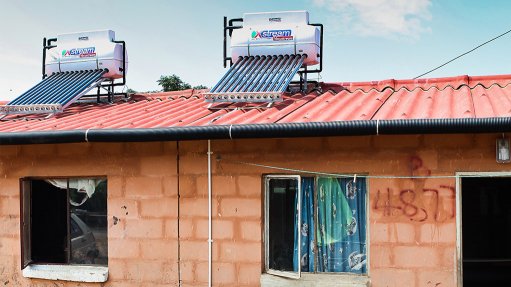
The Sustainable Energy Society of Southern Africa (Sessa) on Friday called on the Department of Energy (DoE) to follow its three-step “rescue plan” aimed at resolving the uncertainty surrounding the administration of the solar rebate programme.
Sessa said its attempts at obtaining clear guidelines from the DoE after it assumed responsibility for the national solar water heater (SWH) programme in February had been unsuccessful.
The society called on the DoE to provide necessary assurances to the rebate administrators so that the processing of claims could resume; to respond to requests for a meeting of implementing stakeholders aimed at ensuring continuity and dispelling all uncertainty during the transitional phase of the programme; and to implement a programme whereby the rebate administrators published a biweekly dashboard of rebate claims in relation to the 5 000 subsidies system cap.
Under the auspices of State-owned power utility Eskom, the SWH programme, which offered rebates of between R5 000 and R12 000 depending on the size of the geyser, had fallen short of its target of one-million subsidised installations by 2014, with only 417 000 having been installed as at September 30, 2014.
The DoE said a maximum of 5 000 subsidies – at the current Eskom rebate levels, together with the payment services – would be offered, with no further subsidies available under this programme once this cap was exceeded.
The department, which announced plans to introduce a new rebate scheme, said it would provide further information by March 31.
However, despite a “clarification” statement by the DoE shortly after the announcement of change of control, Sessa has had to field more than 120 queries surrounding the status of claims in addition to the 5 000 unit cap.
“This is putting small, medium-sized and microenterprise installers at extreme and unprecedented risk, leaving them in the dark as to how to price their systems and services,” the society said.